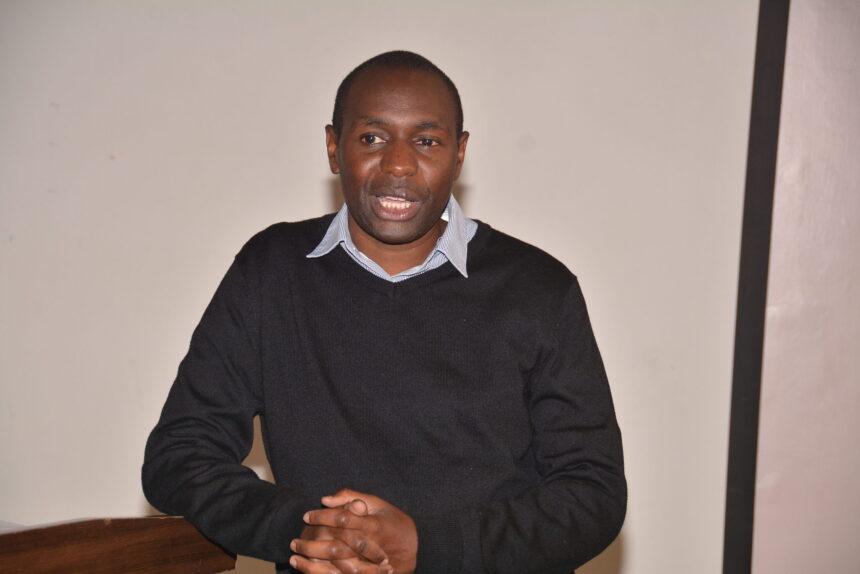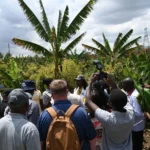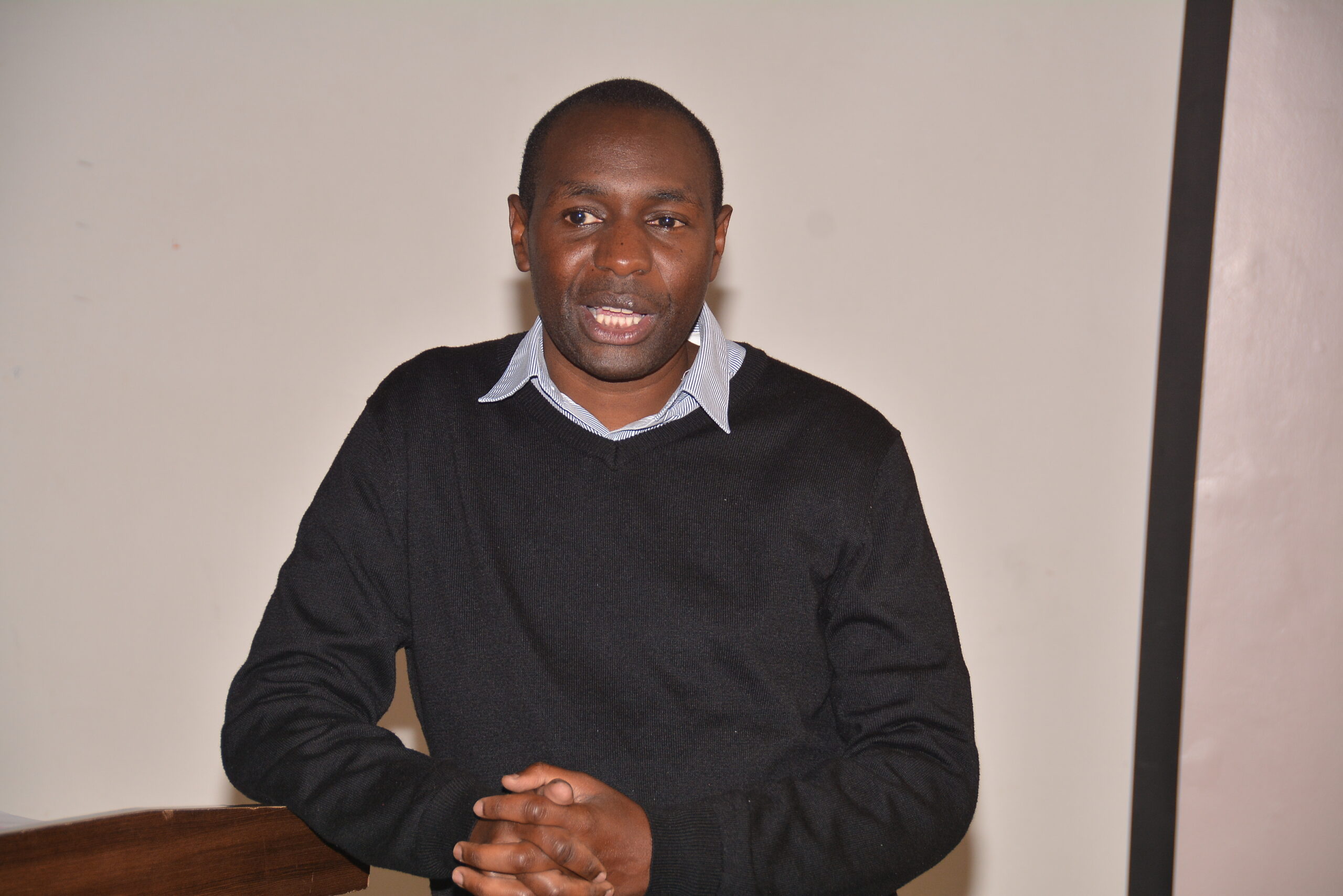
By Sharon Atieno
Although Africa has a target of restoring 100 million hectares of forest landscape by 2030 in an initiative referred to as African Forest Landscape Restoration Initiative (AFR100), the progress has been slow. By 2022, only about five million hectares had been restored.
Peter Ndunda, Resources Lead, Forest and Landscape Restoration, World Resources Institute- Africa said during a biodiversity training held by Media for Environment, Science, Health and Agriculture (MESHA) in Nairobi, Kenya.
He observed that with the current rate, Africa will not be able to achieve this target, thus there is need to change course including working closely with local communities who are already engaged in restoration activities.
Landscape restoration is the process of bringing back the productivity or ecological functions of the land. Productivity of food, water, energy resources, biodiversity and the entire range of ecosystems that human beings rely on for survival.
Ndunda says there is need to restore African lands because they suffer from continuous pressure for settlement and agriculture among other activities. The land is also decreasing in productivity with about 65% of arable land being degraded, he said, adding that poor communities are the most affected by the degradation
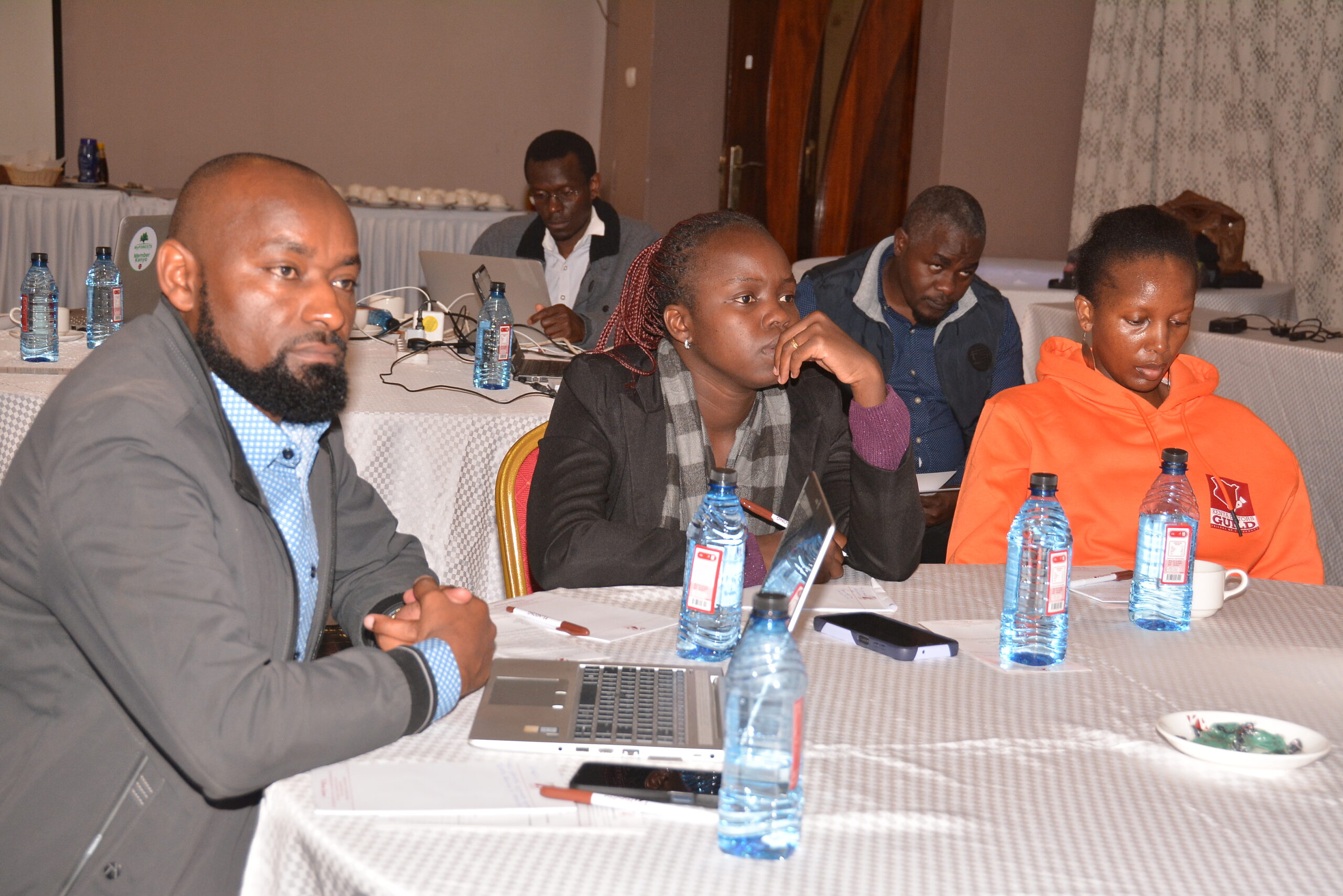
Journalists listen to Peter Ndunda, the restoration lead at WRI as he explains the intricacies of forest landscape restoration in Africa. Photo: MESHA
By restoring the 100 million hectares, the continent will be able to sequester from the atmosphere 5.9 billion tonnes of carbon dioxide equivalent by 2040. This will be at a rate of about 730 metric tonnes of carbon dioxide per annum.
In the spirit of working with local communities to restore landscapes, WRI and its partners rolled out a programme dubbed TerraFund for AFR100 in 2021 to finance non-profit community organizations and for profit businesses that restore Africa’s land.
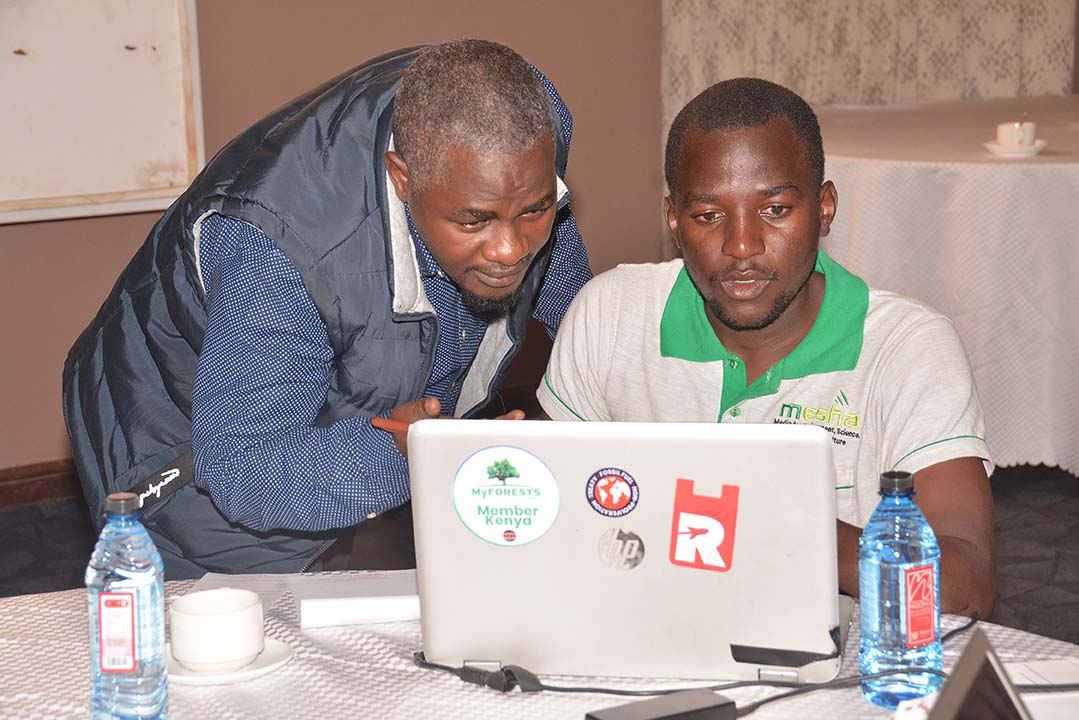
The programme focuses on three major landscapes which have suffered decades of degradation. These are: Kenya’s Greater Rift Valley, the Lake Kivu and Rusizi River Basin of Burundi, DRC, and Rwanda, and the Ghana Cocoa Belt.
In 2022, after an extensive selection process, the programme deployed its first grants and loans of $50,000 to $500,000 to 100 of these innovators that work across 27 countries.
In 2024, with support from Bezos Earth Fund and the Audacious Project, $17.8 million was allocated to a second cohort comprising 78 non-profits and 14 enterprises through grants, loans, and equity investments.
The cohort includes 36 organizations from Kenya, 20 champions from Rwanda, 11 organizations from Burundi, 10 projects in the Democratic Republic of Congo (DRC) and 15 projects in Ghana.
Through 2030, the cohort is expected to plant 12.7 million trees and restore 47,000 hectares of degraded landscape while creating 52,000 temporary and full-time jobs and benefitting nearly 600,000 people living in these regions.
The impact of this investment is tracked through the TerraMatch platform, which uses cutting-edge monitoring, reporting, and verification techniques from Land & Carbon Lab that combine field-collected data with insights from satellite imagery.


